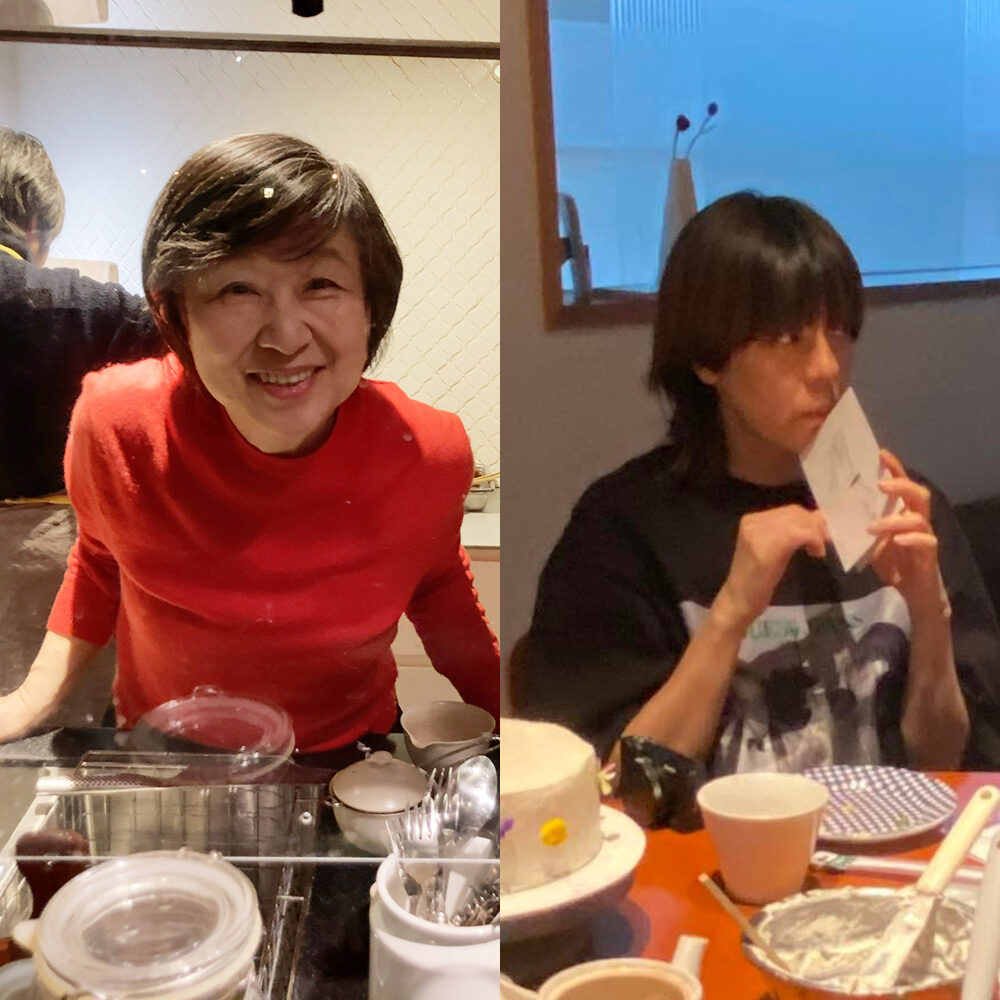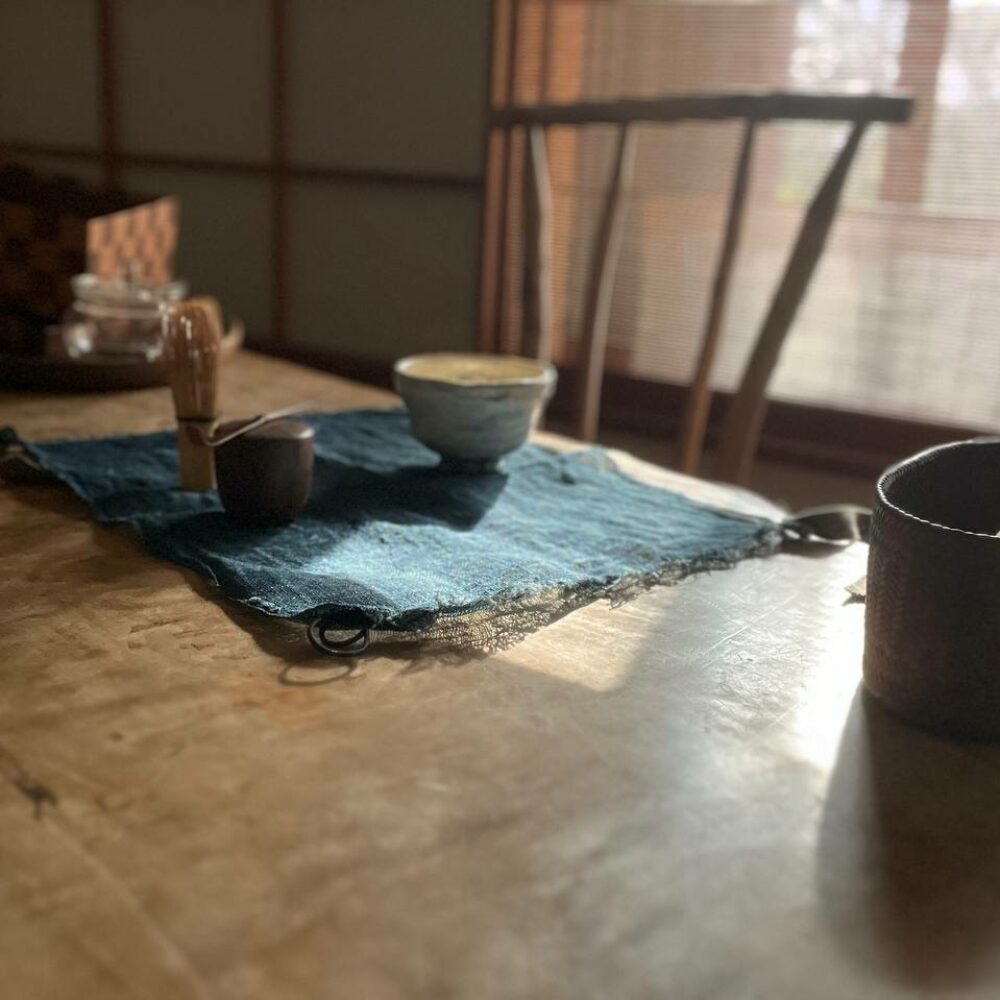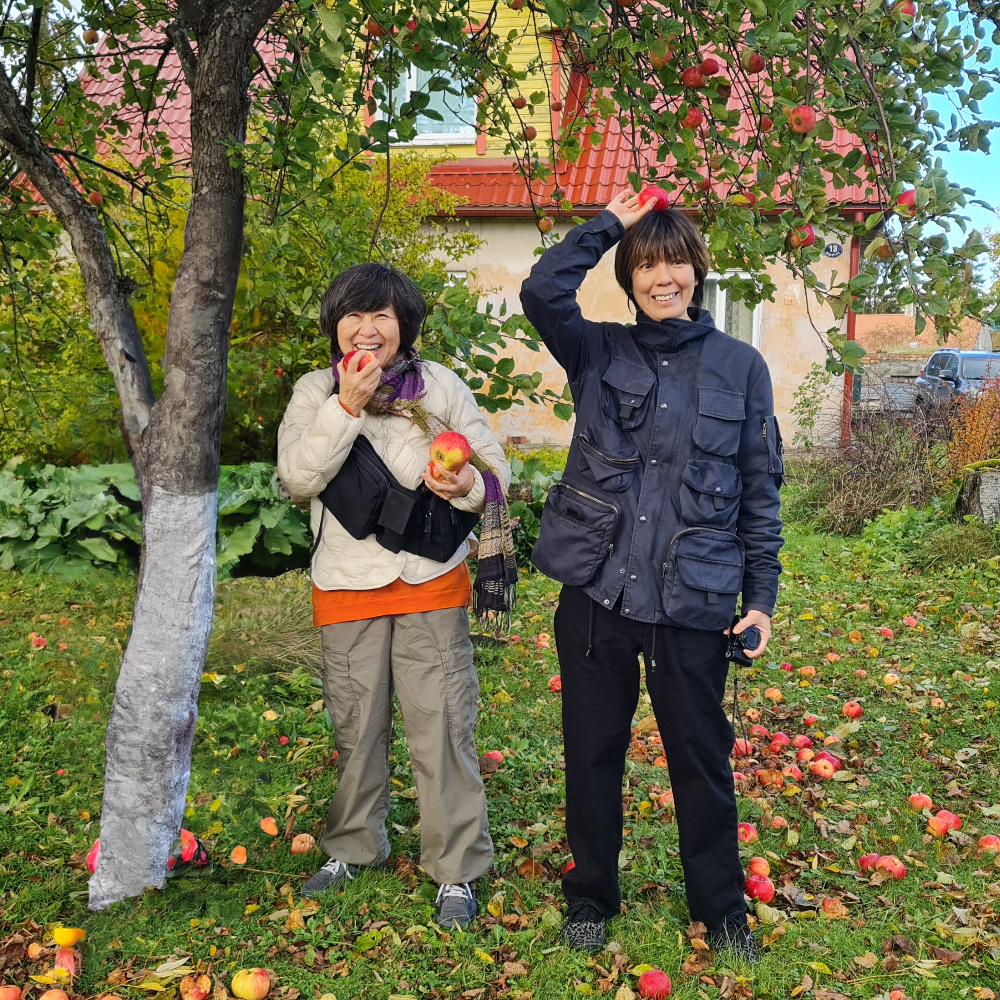reico MOTOHARA & kabo (japan )
21.08 – 22.10.2023
// BIO
Since 2012, contemporary artist & potter reico motohara has been conducting workshops at the site of a 2,000 year-old civilization ruins in her town of Shizuoka City. Her 6-month workshop involves creating cooking pots from the ruin’s soil, growing rice in the rice paddies and finally cooking the rice in those pots.
There are not only earthworms in the soil but also a tremendous number of microorganisms that break down organic matter into the elements. This experience led to the realization that our bodies easily decompose and are made up of almost the same ratio of elements that exist in the universe. In 2021 motohara began a project interviewing people at the dinner table. With a photographer, motohara visited various homes in Nagoya, Japan to learn about their standard dishes, and wrote a book about the conversations that took place while cooking and eating together.
Research-based artist kabo expresses the juxtaposition of the past and present landscapes through photographs and installations. In her 2020 solo exhibition “little hong kong, little rooftop” (BLOCK HOUSE), kabo transformed the rooftop of a building to look like Hong Kong living space and presented an installation work composed of common household items from this city shaken by the democracy movement. She also presented an ongoing series of works photographing the industrial area of Tokyo in the “Ironworks Island Fest” from 2017 to 2019.
// PROJECT
Located at the crossroads of the EU, Russia and close to Ukraine, Narva presents a lifestyle background and situation that we cannot encounter in Japan. We would like to take advantage of the diverse location and cultures of the city during a NARVA Residency to record the conversations that take place. It is often in closed-space conversations, like a meal around the kitchen table, that show the kind of society we are living in today.
We would like to conduct a community-based work which creates a record of kitchen stories (conversations and the environment) collected during interactions with Narva residents in the process of cooking and eating everyday meals together.
In Japan, there is the saying “同じ釜の飯を食べる (onaji kama-no meshi wo taberu)” – to eat rice from the same pot. When we cook and eat meals together, we can transcend ethnic, cultural, political, and country differences, and become people who can live together in the same world.
This project is an attempt towards making “the Now” together and we want to consider the individual’s relationship to society and nation from the kitchen.


